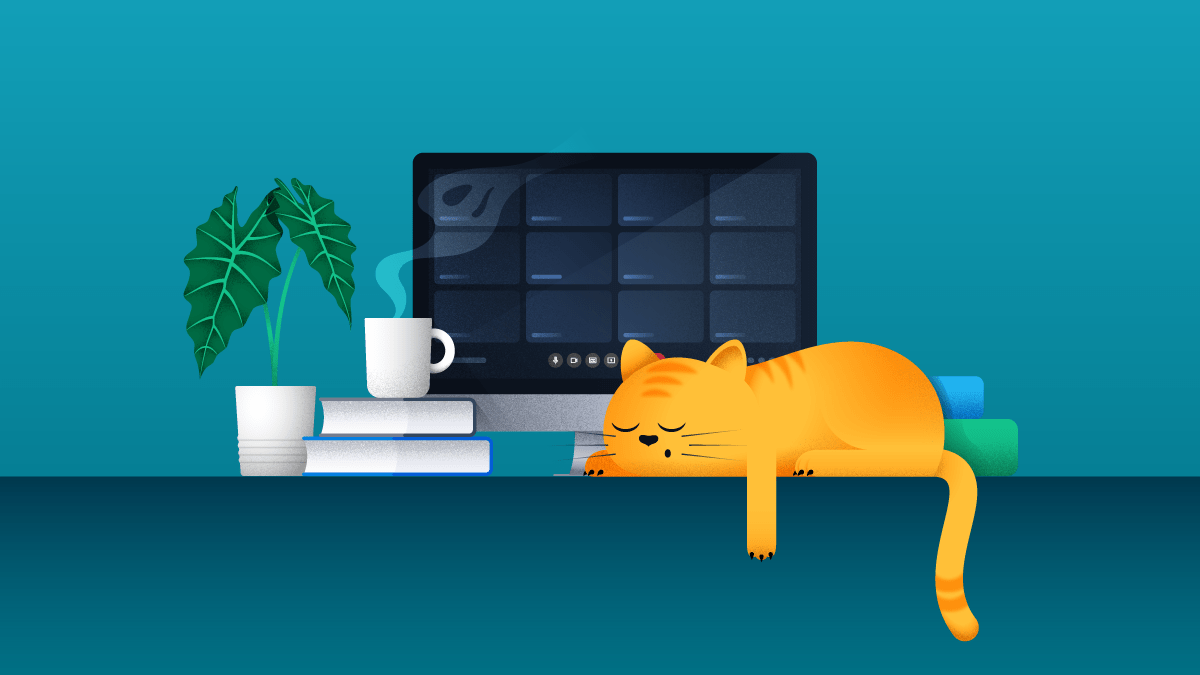Remote Work Is Changing the World – For the Better
Remote work, work from home, the new normal, the future of work; whatever you choose to call it, the path forward is clear.
Flexible work is here to stay.
When employers sent workers home in March 2020, no one could have imagined we wouldn’t be back a year and a half later. No one imagined businesses and employees could thrive working remotely.
But they did.
The Data Is Clear, Remote Work, Works
According to a PwC survey of executives and employees completed earlier this year, 73% of executives thought the transition to remote work was a success and 69% thought employees were as or more productive. Employees also viewed remote work positively with 72% wanting to work remotely at least 2 days per week and 32% that never want to return to an office again.
The pandemic accelerated a trend that was already in motion. Before the pandemic, 80% of workers said that if given the choice between two jobs, they’d turn down the one that didn’t allow for flexible work.
The pandemic forced an experiment that now gives company leadership an incredible opportunity to step up and step out of their comfort zones and rethink the way we work to give employees flexibility, optionality, and freedom.
Providing the option to work remotely allows employees to work in the way and the environment that they are most productive. This flexibility also gives individuals and families the ability to live and work where they are most happy rather than where they are forced to live due to where jobs are located.
- The Future of Work Is Personal, Flexible, and Remote
As an employer, not only is fostering a flexible, remote work culture productive and profitable, it’s the right thing to do.
I’ve personally experienced the life-changing impacts of having the freedom to work remotely.
After eight months of remote work during the pandemic, I left the security of my corporate job to pursue work that was more meaningful to me and a lifestyle that better fit me as an individual.
What Drove Me to Take This Leap? Remote Work.
Decoupling myself from the office drove me to the realization that I had forgotten about the many other important aspects of my life.
Prior to the pandemic, my job was my number one focus and priority. Achieving success as defined by society was so ingrained in my mind that I constantly strove to do what I was “supposed” to do at all costs to make it happen.
The problem with this is twofold: 1) It’s not healthy to live an unbalanced life; and 2) When you do things because of what society tells you, you’re not doing it for yourself and your own reasons, you’re doing it for external reasons.
When you look externally for feelings of achievement or success, you lose your identity and it’s hard to be true to yourself. Unless you look inward, you’ll always feel the need to chase the next big thing, whether it be a promotion, a raise, or a cool new job title.
I know, I’ve been there:
I was viewed as a rising star with an exciting job. The problem was, I couldn’t be my authentic self in this corporate world. There was no room for creativity, new ideas, or new ways of doing things. I couldn’t be me.
- Challenge Unhelpful Thoughts With These 4 Questions
The ability to work remotely has transformed my life. It is painful to look back to the days when I let work overtake my life. To a time when I ignored the things that really mattered and deserved my attention most.
Since I made the transition to remote work, I’ve regained much-needed balance in my life, focused on what is most important, and embraced who I am, not who society thinks I should be.

Create Your Book
Use Lulu's free templates to easily create and publish your book today.
Lulu Helped Me Get Here.
At the time I quit my corporate job, I didn’t understand how much the ability to work remotely on my own terms contributed to this about-face in my outlook.
When I first started working with Lulu in early 2021, I was scared to say what I really needed. Which, at the time, was patience, the ability to continue to work remotely, and a slow ramp-up in work.
But, because of my trust in Lulu’s leadership team and my new outlook, I decided to try something new and be open and transparent from Day 1.
I was not used to my employer caring about what I personally needed. That’s why it was such a pleasant surprise to be able to have open conversations with the executive team and have my boundaries respected above all else.
And when I gradually learned that remote work was one of those things that helped me maintain my newfound balance, Lulu allowed me to continue remotely, even separated by a time difference of six hours and a distance of 5,000 miles.
I was encouraged to make this change and pursue a healthier and happier lifestyle, on my terms. I should not have been surprised by this outcome. Why?
Lulu does what’s best for its people, always putting culture and employee wellbeing above all else.
That’s why the company embraces a flexible work environment. Because it’s the right thing to do.
My personal circumstances only tell one story. Many other employee and societal benefits come with fostering a flexible work environment.
Employee Health & Wellbeing
When companies embrace flexible work, employees can thrive professionally and personally by living and working in the way and place that best fits them as an individual. To not feel guilty for taking care of something important when necessary, whether that’s caring for a family member, focusing on mental health, running an errand in the middle of the day, or just getting out for a walk.
Flexibility allows for better balance, more efficient and productive use of time, and the ability to take more time for yourself.
Inclusivity
Requiring employees to be physically present in an office to succeed has had a detrimental impact on inclusivity in the workplace. Women who take time off to care for children and families are looked down upon, people with disabilities who can’t practically travel to an office every day are excluded, and psychological safety is often endangered for those who feel they must “act a certain way” in the office.
Actively communicating and showing employees that wanting or needing to work at home will not negatively impact their careers can help bring us one step closer to more inclusive work environments and promote much-needed change in our society.
Geographic Equity
Traditionally, people and money are drawn to locations where jobs are physically located. This has created a number of “superstar” cities with a monopoly on jobs, talent, and wealth.
Remote work gives people who live in traditionally disadvantaged and rural communities access to jobs that they would have been otherwise excluded from “simply because they cannot afford to live close enough to commute to the office.”
It also allows employees who would prefer not to live in an urban area to move to more rural locations. This influx of knowledge workers and increased opportunities for rural communities can help diversify rural economies, prevent brain drain, and allow for a more equitable distribution of wealth.

Your Free Lulu Account
Create a Lulu Account today to print and publish your book for readers all around the world
Environmental Stewardship
With fewer daily commuters, air travel replaced by virtual meetings and conferences, and a reduction in office building energy use, there is an immense opportunity for businesses to reduce their carbon footprint by embracing remote work.
More data is required to assess the potential impact of shifting energy use and emissions to individual employee homes, but there are certain factors that can help determine if your business and workforce will see an overall emissions reduction by embracing remote work.
The biggest positive impacts will likely be seen in cities and locations where commuters rely on cars (transportation is the largest source of emissions in the U.S.), in locations with moderate climates (home energy use tends to be lower), and where electricity sources are not fossil fuel-heavy. Companies that conscientiously reduce air travel will have an even larger impact.
Remote Work Is the Future of Work
Traditional employees who prefer remote and flexible work and employers who are reinventing company culture, processes, and expectations are causing a fundamental shift in the way we live and work.
The pandemic forced the world’s employers into a remote work experiment, and despite pandemic-driven issues such as isolation and fear, “the remote work experiment has been positive for both employers and employees.”
Imagine what this world could look like when remote and flexible work is no longer driven by a devastating pandemic.
Employment should not be a one-size-fits-all model. Employees deserve a choice.




